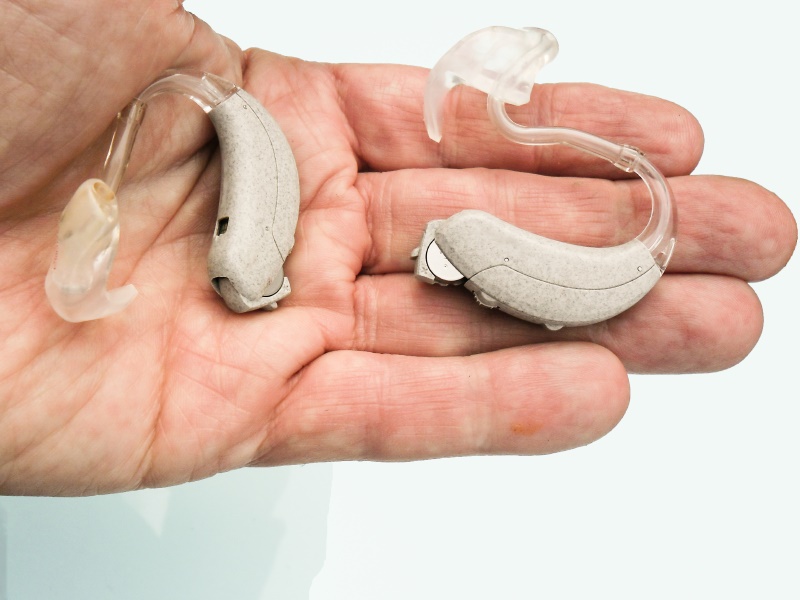
To help keep your hearing aids working effectively for years to come, you need to learn proper care and maintenance. And though it may seem like an extra burden, with the right plan your hearing aid care will come to be easy and automatic.
The key is establishing productive habits.
If you include your hearing aid care into your day-to-day and nightly routines, after a while it won’t feel like any extra work at all.
The following are a few tips for the day-to-day care of your hearing aids (which your hearing specialist will also discuss with you):
Clean your hearing aids on a daily basis – Try to incorporate your hearing aid cleaning into your evening routine, so it will become as automatic as brushing your teeth. This is essential because daily hearing aid cleansing can minimize the build-up of earwax, dirt, and dust into the various components of the hearing aid, which can result in distorted sound with time.
You’ll want to clean your hearing aid with a soft, dry cloth, while averting any liquids that can destroy the hearing aid electronics. Talk to your hearing professional for specialized guidance on cleaning each model of hearing aid.
You may also consider purchasing a hearing aid sanitizer, which utilizes ultraviolet light to safely and thoroughly kill harmful pathogens. Hearing aid cleaning kits are also available with all of the instruments you’ll require to safely clean the device without damaging the electronics.
Always check the batteries – Hearing aid batteries should be checked and replaced regularly to ensure top hearing aid functionality. Consider using a battery tester early in the day to ensure you have a sufficient amount of power for the rest of the day, and keep an extra set of batteries on hand.
At night, when your hearing aids are not being used, turn them off and store them in a cool, dry spot with the battery door open.
Store your hearing aids in a safe place – In regard to storage, you’ll want to keep in mind three things:
- Keep the hearing aids away from moisture. In other words, storing your hearing aids in the bathroom is probably a bad idea.
- Try to avoid exposing the hearing aids—and hearing aid batteries—to temperature extremes. You’ll want to store your hearing aids in a cool, dry place.
- Avoid storing your hearing aids out in the open, where they can become damaged.
We highly recommend storing your hearing aids in a case or drying kit inside the drawer of a bedroom side table. This will safeguard the hearing aids from dampness, temperature extremes, and damage from being knocked off the table.
In addition, remember to take out your hearing aids before showering, swimming, or using a hair dryer or hair spray.
Maintain ear hygiene – While earwax has several helpful properties, like protection and lubrication of the ear canal, it can cause severe damage to your hearing aids. As it gets wedged within the hearing aid components, sound can become distorted.
Ensure that you’re keeping up proper ear hygiene, and if you have excess earwax, think about booking a consultation with a professional.
Properly insert your hearing aids – When putting in your hearing aids, lean over a table or soft surface in the event the hearing aids fall. Hearing aids come with sensitive electronics, so a fall on a hard surface can cause significant damage.
Even with meticulous cleaning and maintenance, over time the hearing aid will require more thorough cleaning or repair.
To assure that you continue to yield the best sound possible, we encourage getting your hearing aids professionally cleaned by a hearing specialist a minimum of two times a year.
Hearing care professionals will provide a deep cleaning, a tune-up, and will on occasion replace parts. Staying on top of this periodic maintenance will prolong the life of your hearing aids and will assure that you achieve the best sound.